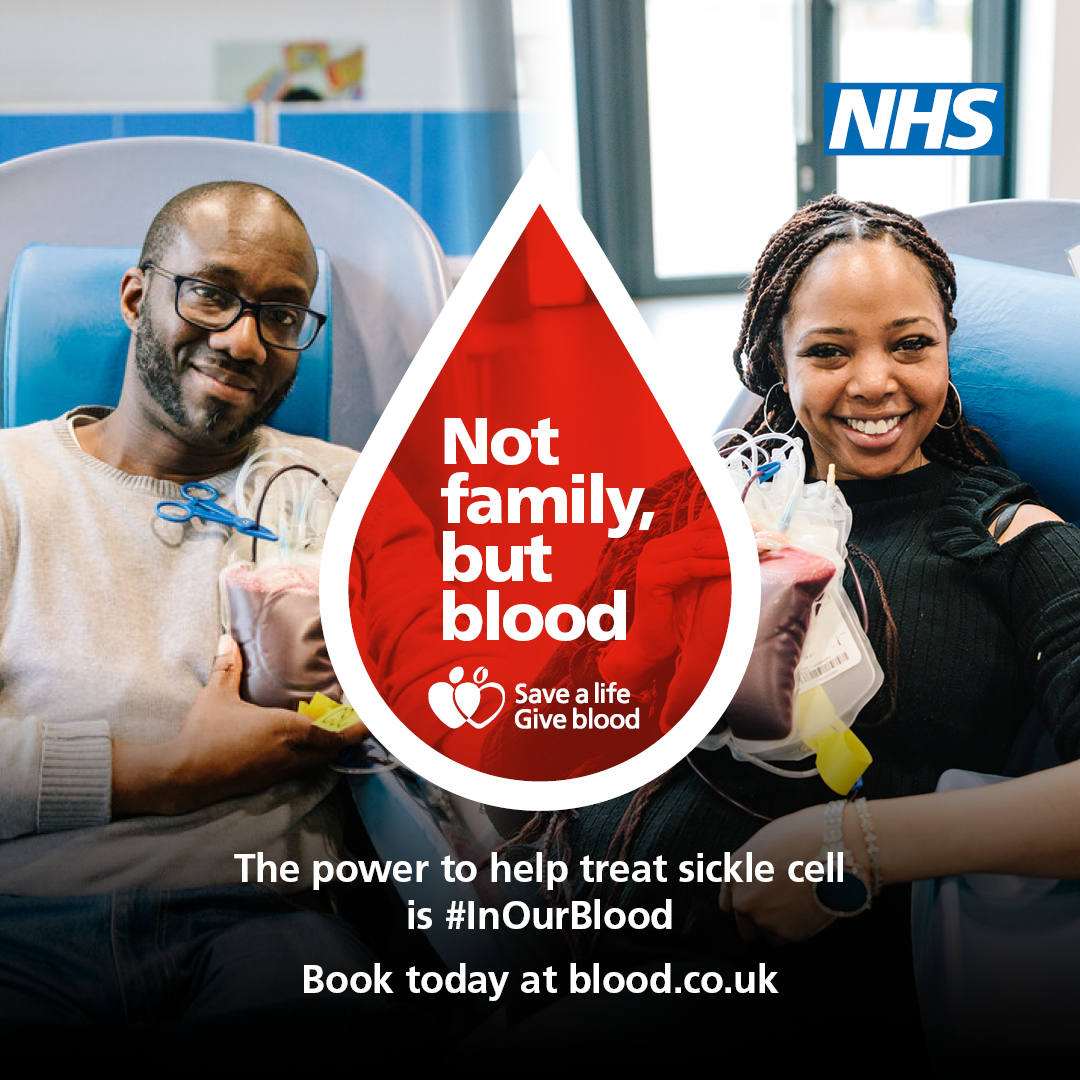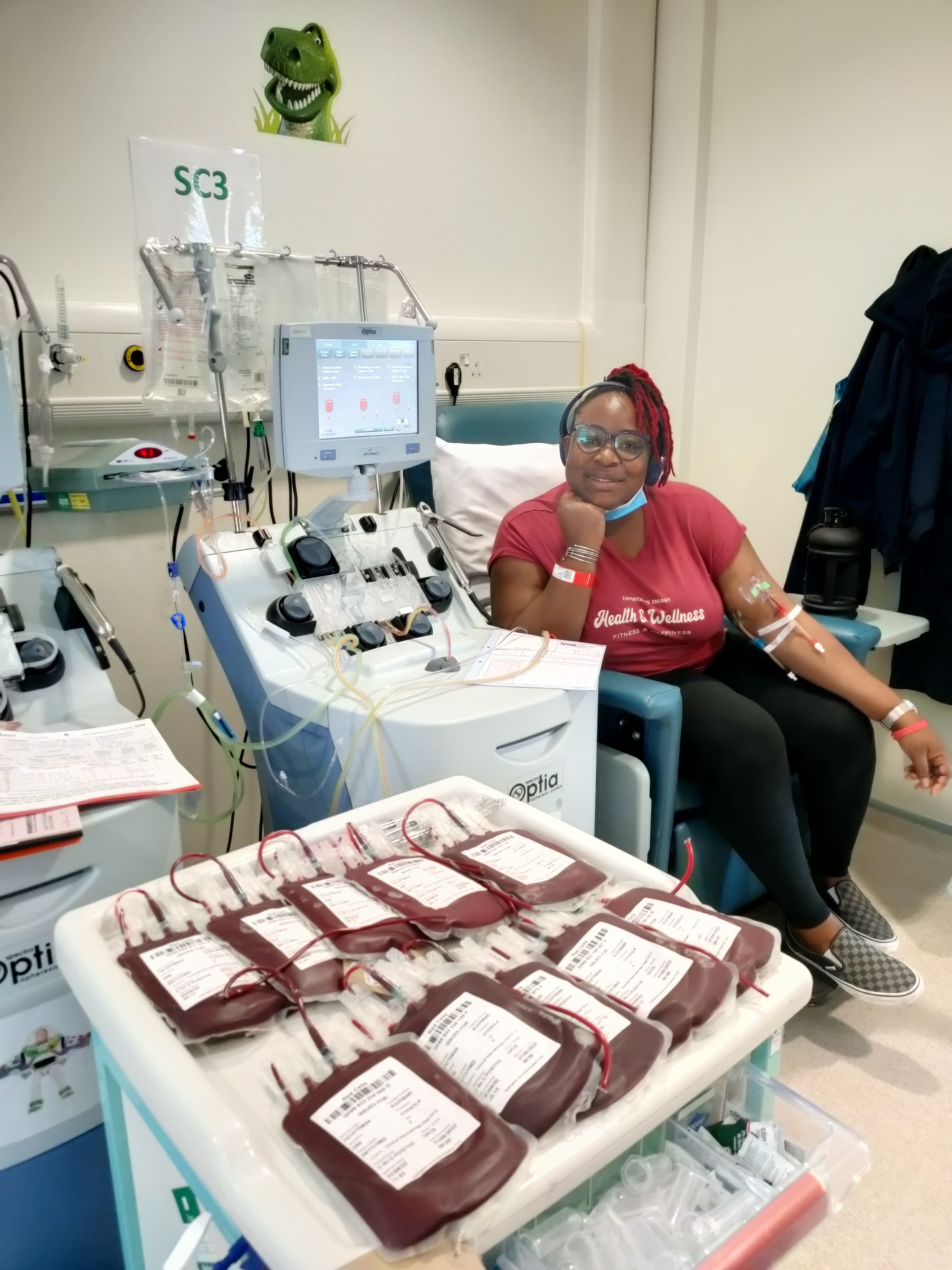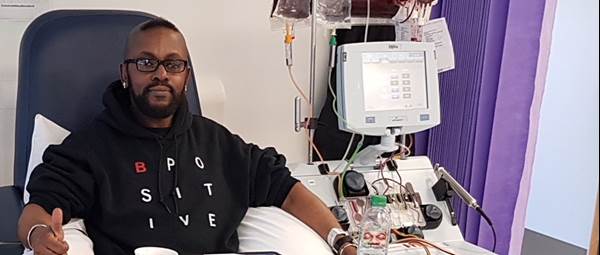Record demand for blood donations to help sickle cell patients prompts urgent call for more donors of Black heritage
The NHS is making an urgent call for more blood donors of Black heritage as new figures reveal a record 250* donations are now needed every day to treat sickle cell, the fastest growing genetic condition in the UK.
The figure shows a huge increase in demand from hospitals to treat patients. Only 150 donations a day were needed five years ago.
Sickle cell is more prevalent in people of Black heritage and ethnically matched blood provides the best treatment. More Black donors are urgently needed to meet the increasing demand**.
NHS Blood and Transplant is this week launching a new campaign titled ‘Not Family, But Blood’ to recruit more donors of Black heritage.
Launched to coincide with Black History Month, the campaign highlights that although the Black community is diverse, one unifying thing is the power to treat sickle cell and provide life changing blood donations.
Sickle cell causes red blood cells to form into sickle or crescent shapes and become stuck in blood vessels, causing agonising crisis episodes, and serious or even fatal long term complications including organ damage and strokes. Many patients need regular blood transfusions to stay alive.
Rising demand for Black donors
The rising demand is driven by increasing patient numbers, as people live for longer, and greater use of complete blood transfusions – known as red cell exchanges – which improve patient outcomes.
Demand for blood to treat sickle cell has risen by 52% over the past five years and is projected to continue to rise.
Currently, NHS Blood and Transplant is only able to provide matched blood for just over half of the hospital requests – other patients need to be treated with O Negative, the universal blood type.
Being treated with O Negative rather than the correct blood type is clinically safe but could mean, long term, patients are more likely to develop antibodies. This puts them at risk of complications and makes it even harder to find blood they can receive.
Oyesola's story
Oyesola Oni, 39, needs all her blood replaced by donor blood every five weeks due to sickle cell.
 Her condition is so severe she could easily suffer a stroke or organ damage, with potentially fatal consequences.
Her condition is so severe she could easily suffer a stroke or organ damage, with potentially fatal consequences.
The mother of one from Nottingham said: “During a sickle cell crisis, it’s like someone is stabbing me, at other times it’s like something crushing my bones. It’s excruciating.”
She added: "Every few weeks the hospital needs to remove all my sickled cells and replace them with donor blood.
“The need for blood never stops. The demand keeps increasing. I was moved from eight pints of blood every six weeks up to 10 pints every five weeks.
“I would urge people of Black heritage to step out and donate. It’s in your blood to help people like me.”
Dr Rekha Anand, Consultant in Transfusion Medicine for NHS Blood and Transplant said:
“Matched blood is vital for sickle cell patients to reduce the risk of serious complications, and Black people are more likely to be able to donate matched blood.
“There has been a small rise in Black people donating blood, but we urgently need more to become regular donors. Giving blood is easy, quick and safe - and you will save and improve lives.”
Regional Director for London in the Office for Health Improvement and Disparities Professor Kevin Fenton said:
“Sickle cell disease is the fastest growing genetic disorder in the UK - mostly affecting people of Black heritage – and we urgently need more blood donors from Black communities to come forward as they are more likely to have the blood type vital to treat this disorder.
“Being able to provide high quality clinical care to sickle cell patients both saves and improves the quality of their lives and is an important step in helping tackle health inequalities.
“I urge anyone who is eligible to donate blood as this selfless act will ensure we can continue to save lives by helping those who need it most.”
NHS England Director of Healthcare Inequalities Improvement and GP, Dr Bola Owolabi, said:
“Sickle cell disproportionately affects people from a Black African or Black Caribbean background, and these new figures show hospitals need more blood for people with sickle cell disease than ever before.
“I urge anyone from these communities who is able to give blood to step forward and help treat the thousands of people living with this painful hereditary condition.”
Become a blood donor today. If a local session is full, don’t worry. It’s good news because it means we’re getting a good response. Please book an appointment for a future date. Your blood is still needed and you will still save lives.

